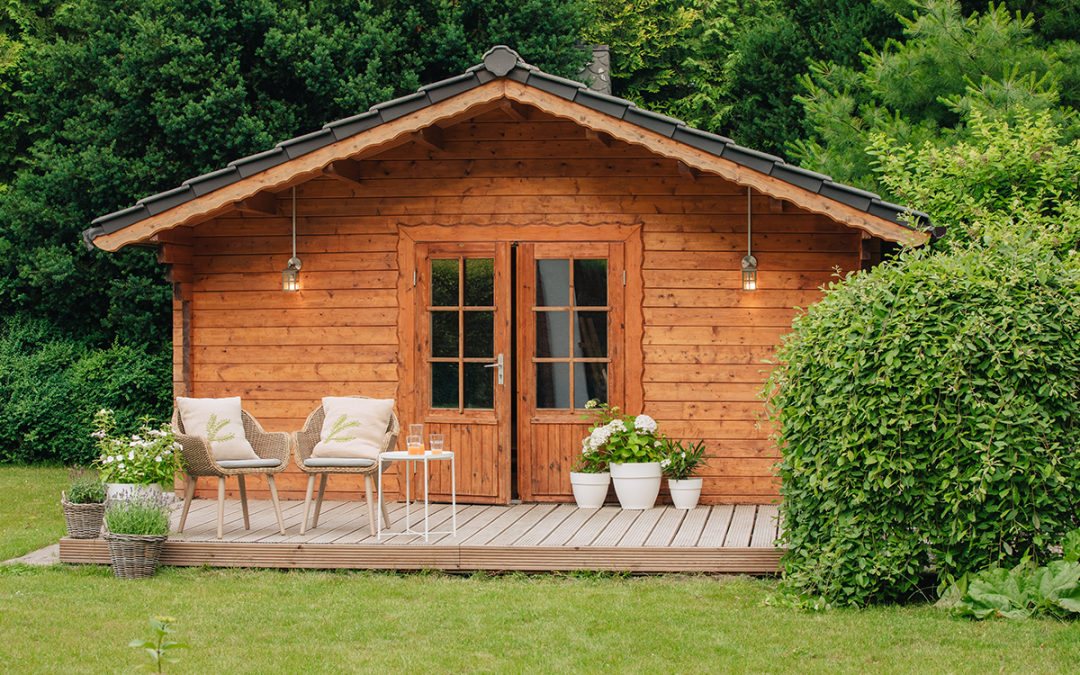
A custom shed is a great addition to any property, providing valuable storage space for garden tools, outdoor equipment, and other belongings. When it comes to building a custom shed, choosing the right materials is essential to ensure the structure is durable, functional, and aesthetically pleasing. In this article, we’ll discuss the top materials for custom shed construction.
- Wood
Wood is the most popular material for custom shed construction, and for good reason. It’s a natural material that is easy to work with and can be painted or stained to match your home’s style. Wood is also durable and long-lasting, with proper maintenance, and provides good insulation, keeping your belongings safe from the elements.
When choosing wood for your shed, you’ll need to consider the type of wood and its quality. Cedar and redwood are excellent choices for their natural resistance to rot and decay. Pine and fir are also popular choices but require a sealant to prevent rot and decay.
2. Metal
Metal is another popular material for custom shed construction. It’s durable, low-maintenance, and provides excellent protection against the elements. Metal sheds are also resistant to pests and fire, making them a safe option for storing equipment or flammable materials.
When choosing metal for your shed, you’ll need to consider the thickness of the metal, with a higher gauge number indicating a thinner metal. Thicker metal will provide better durability and longevity. You’ll also need to choose a metal that is resistant to rust and corrosion, such as galvanized steel or aluminum.
3. Vinyl
Vinyl is a synthetic material that is becoming increasingly popular for custom shed construction. It’s lightweight, low-maintenance, and resistant to rot, decay, and pests. Vinyl sheds are also easy to assemble, with many kits available for DIY installation.
When choosing vinyl for your shed, you’ll need to consider the thickness of the material. Thicker vinyl will provide better durability and resistance to damage from wind and impacts. You’ll also need to choose a vinyl that is UV-resistant to prevent fading and cracking over time.
4. Plastic
Plastic is another synthetic material that is often used for custom shed construction. It’s lightweight, easy to assemble, and requires little maintenance. Plastic sheds are also resistant to rot, decay, and pests, making them a safe option for storing equipment or flammable materials.
When choosing plastic for your shed, you’ll need to consider the thickness of the material. Thicker plastic will provide better durability and resistance to damage from wind and impacts. You’ll also need to choose a plastic that is UV-resistant to prevent fading and cracking over time.
5. Concrete
Concrete is a popular choice for custom shed foundations, providing a solid and stable base for the structure. A concrete foundation can also help prevent water damage and keep pests out of the shed.
When choosing concrete for your shed foundation, you’ll need to consider the strength and thickness of the concrete. A thicker and stronger concrete will provide better stability and durability. You’ll also need to ensure the concrete is properly reinforced to prevent cracking and damage over time.
6. Brick and Stone
Brick and stone are popular materials for custom shed construction, providing a durable and aesthetically pleasing option. Brick and stone sheds are also fire-resistant and provide excellent insulation, keeping your belongings safe from the elements.
When choosing brick or stone for your shed, you’ll need to consider the thickness and quality of the material. Thicker and higher-quality brick or stone will provide better durability and insulation. You’ll also need to ensure the foundation can support the weight of the brick or stone.


